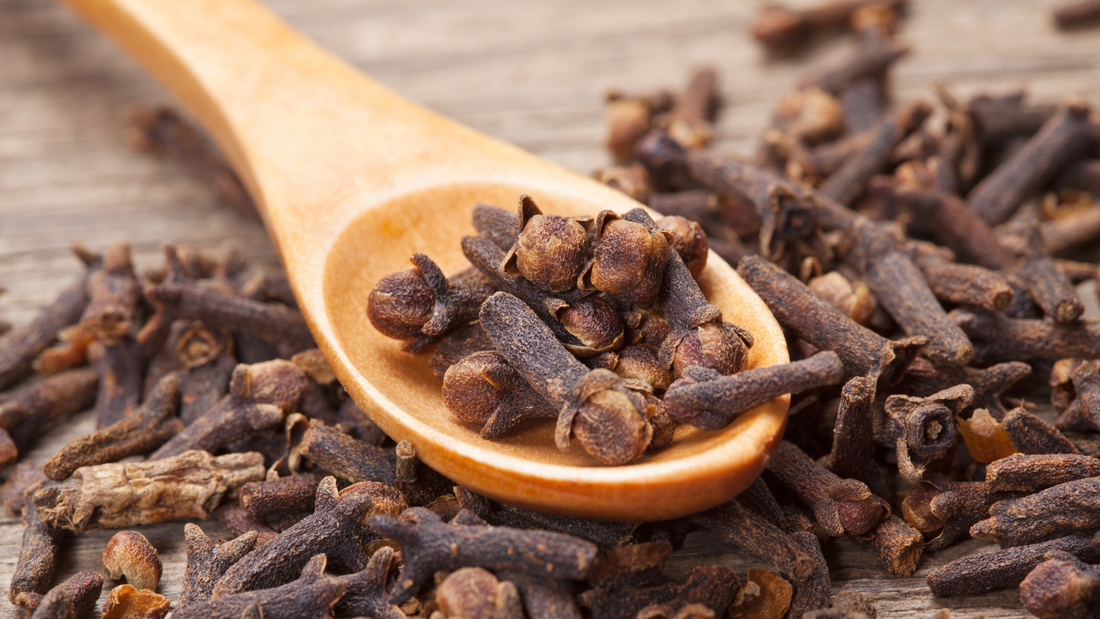Clove, the aromatic bud of the evergreen tree Syzygium aromaticum, has a history as rich and deep as its flavor. Native to the Maluku Islands in Indonesia, also known as the Spice Islands, clove has been at the heart of international trade, cultural exchanges, and even wars. This small but mighty spice has not only flavored dishes and freshened breath for centuries but also offered a myriad of health benefits, thanks to its potent medicinal properties. Let's embark on a journey through time, exploring the history, uses, properties, and safety concerns of clove.
A Fragrant Voyage: The History of Clove
Clove's journey begins over 2,000 years ago, with its discovery on the tiny Moluccas islands. The Chinese Han dynasty (206 BC – 220 AD) documented the use of clove for freshening breath and relieving toothaches. By the Middle Ages, clove had become incredibly valuable in Europe, often worth more than gold, due to its rarity and cost of transport. This high value led to the Age of Exploration, as European powers sought direct access to the Spice Islands, culminating in the Dutch monopolizing the clove trade in the 17th century. Today, clove is grown in tropical regions around the world, but its mystique remains, tied to tales of exploration, empire, and entrepreneurship.
The Power of Clove: Uses and Applications
Culinary Delights
Clove is a staple in kitchens worldwide, known for its warm, sweet, and slightly bitter flavor. It's a key ingredient in spice blends like garam masala, pumpkin pie spice, and Chinese five-spice powder. Cloves can be used whole or ground to season meats, curries, marinades, and desserts.
Medicinal Marvels
The medicinal uses of clove are vast, thanks to its antiseptic, analgesic, and anti-inflammatory properties. Here are some ways clove is used in traditional and modern medicine:
- Dental care: Clove oil, rich in eugenol, is a popular remedy for toothaches and gum pain. It's also used in mouthwashes and dental products for its antimicrobial properties.
- Pain relief: Applied topically, clove oil can help relieve pain from arthritis and headaches.
- Digestive aid: Clove is believed to stimulate digestion, reduce gas, and alleviate nausea.
Aromatherapy and Cosmetics
In aromatherapy, clove oil is used for its stimulating and warming properties, believed to combat fatigue and mental exhaustion. It's also added to cosmetics for its fragrance and antiseptic qualities, beneficial in acne treatments and skin care products.
Unveiling the Essence: Main Constituents and Properties
Clove's potent properties come from its rich chemical composition, with eugenol being the star compound. Eugenol accounts for 72-90% of clove oil's composition, contributing to its analgesic, antiseptic, and anti-inflammatory effects. Other important constituents include acetyl eugenol, beta-caryophyllene, and various flavonoids, which add to its antioxidant and antimicrobial capabilities.
Harnessing Clove's Power: How to Use It
- Culinary use: Start with a small amount, as clove's flavor is potent. Use whole cloves to infuse flavor into broths, curries, and teas, removing them before serving. Ground clove can be added directly to dishes.
- Dental care: For toothache relief, apply a small amount of clove oil to a cotton ball and dab onto the affected area.
- Skin care: Mix clove oil with a carrier oil (like coconut or almond oil) before applying to the skin to reduce acne or pain. Always perform a patch test first.
Recommendations and Safety Concerns
While clove offers many benefits, it's important to use it safely:
- Dilution: Always dilute clove oil with a carrier oil to prevent skin irritation.
- Ingestion: Use caution when ingesting clove oil, as it can be toxic in high doses. Stick to culinary amounts of ground or whole clove.
- Pregnancy and children: Pregnant women and children should use clove oil under medical advice.
- Allergies: If you have a history of allergies or sensitivities, start with small amounts to test your reaction.
Conclusion: The Clove Connection
Clove's journey from the Spice Islands to global prominence is a testament to its enduring value, both as a culinary ingredient and a medicinal marvel. Its rich history is matched by its diverse uses, from spicing up dishes to soothing toothaches. As we continue to explore and appreciate clove's many benefits, it's crucial to remember the importance of using it responsibly and safely. Whether you're reaching for a jar of cloves to enhance your next meal or using clove oil to ease pain, you're tapping into a tradition that spans millennia, connecting us with cultures and healers from the ancient world to today


